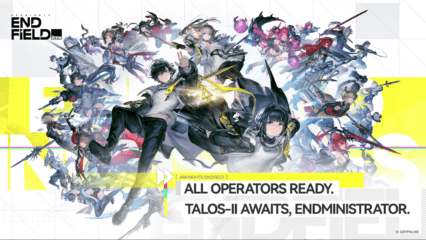BlueStacks Beginner's Guide to Playing The Lord of the Rings: War

The Lord of the Rings: War is a strategy game that tests a player’s ability to plan ahead to create a powerful kingdom that can stand against any threat that may arrive. For veterans of the genre, the path towards success is a familiar one since they can establish a great start that will set them for the long term. Beginners may not have the same luxury so they become targets for the strong unless they learn about some basic concepts that will assist them to stand their ground in this PvP-heavy game.
It’s time for new players to rise up against the seasoned veterans by learning about the fundamentals that ensure players have a strong start. Once you’ve learned about these concepts and their importance, you’re one step closer to having a very strong kingdom that can attack or defend against other players without worrying about getting crushed in return. This beginners guide will offer an in-depth explanation of the important points you need to take note of from start to end.
Economy Development
A kingdom’s economy is the most important part that needs to be maintained properly if the player wants to compete against other players. Having a stable economy means that the player can continuously build or upgrade infrastructures and train new soldiers to maintain their military advantage. To create a strong economy, the player must upgrade necessary resource structures and practice smart resource management to create a system that allows them to never run out of resources.
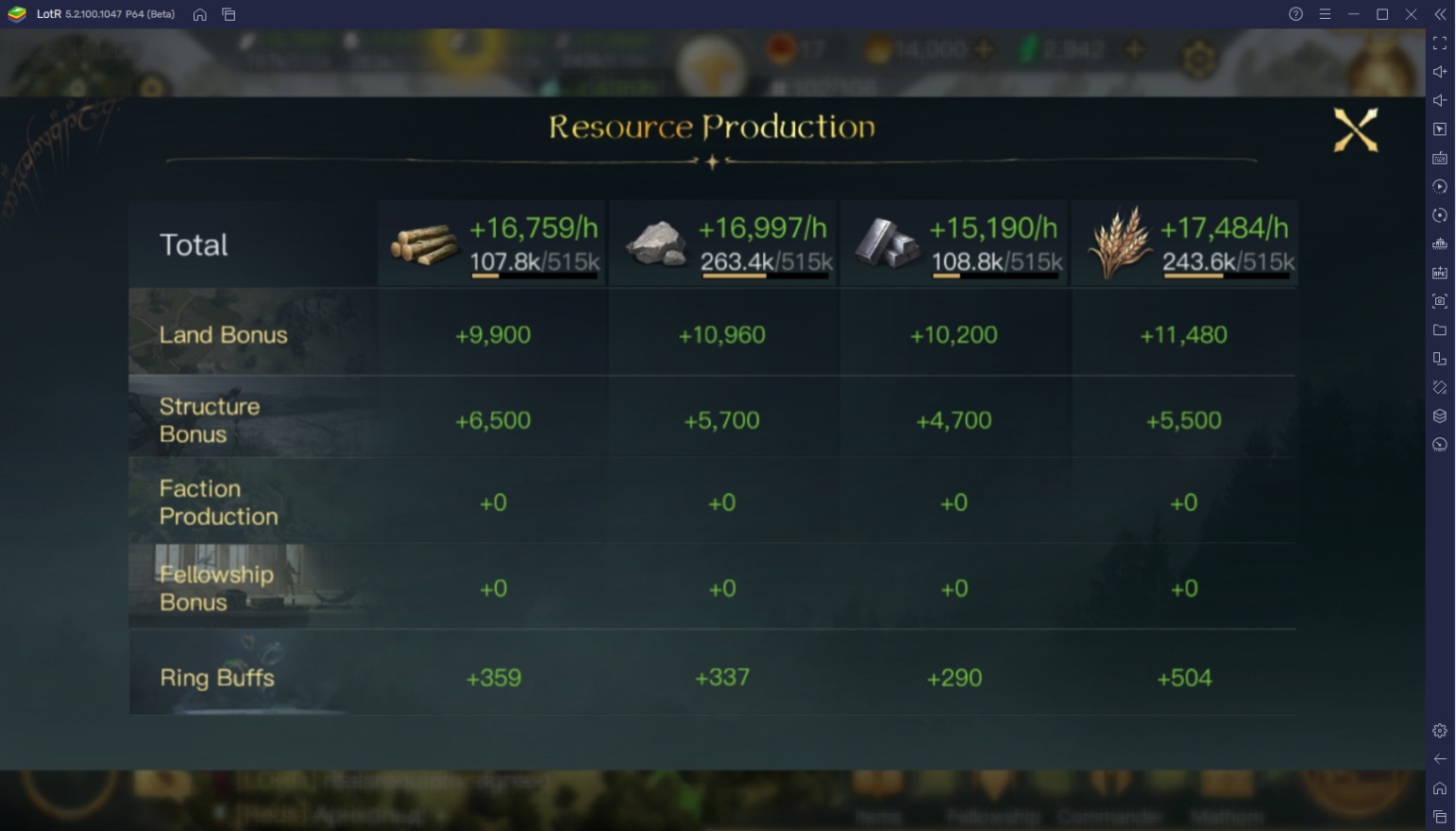
We’ll be giving a more in-depth article on resource management in our in-depth economy guide for Lord of the Rings: War, but for those that are in a rush to play the game and get the best start they can, a good tip that will help you stay ahead is to upgrade resource production and occupy as many tiles as possible. Once you’ve established a functional production system, everything else in the game will be easier. There are also other ways to get resources if you’re in a pinch so don’t forget to discover those as well.
Military Might
Once you’ve established creating a functional economy, the next thing that you need to do is improve your military strength. Having a reliable army to defend your kingdom and expand your interests is what will help you win the game. To create a powerful army, players will need to recruit commanders and outfit them with troops that will follow their lead. The more powerful the commander, the more soldiers they can command in their army that can overwhelm enemies.
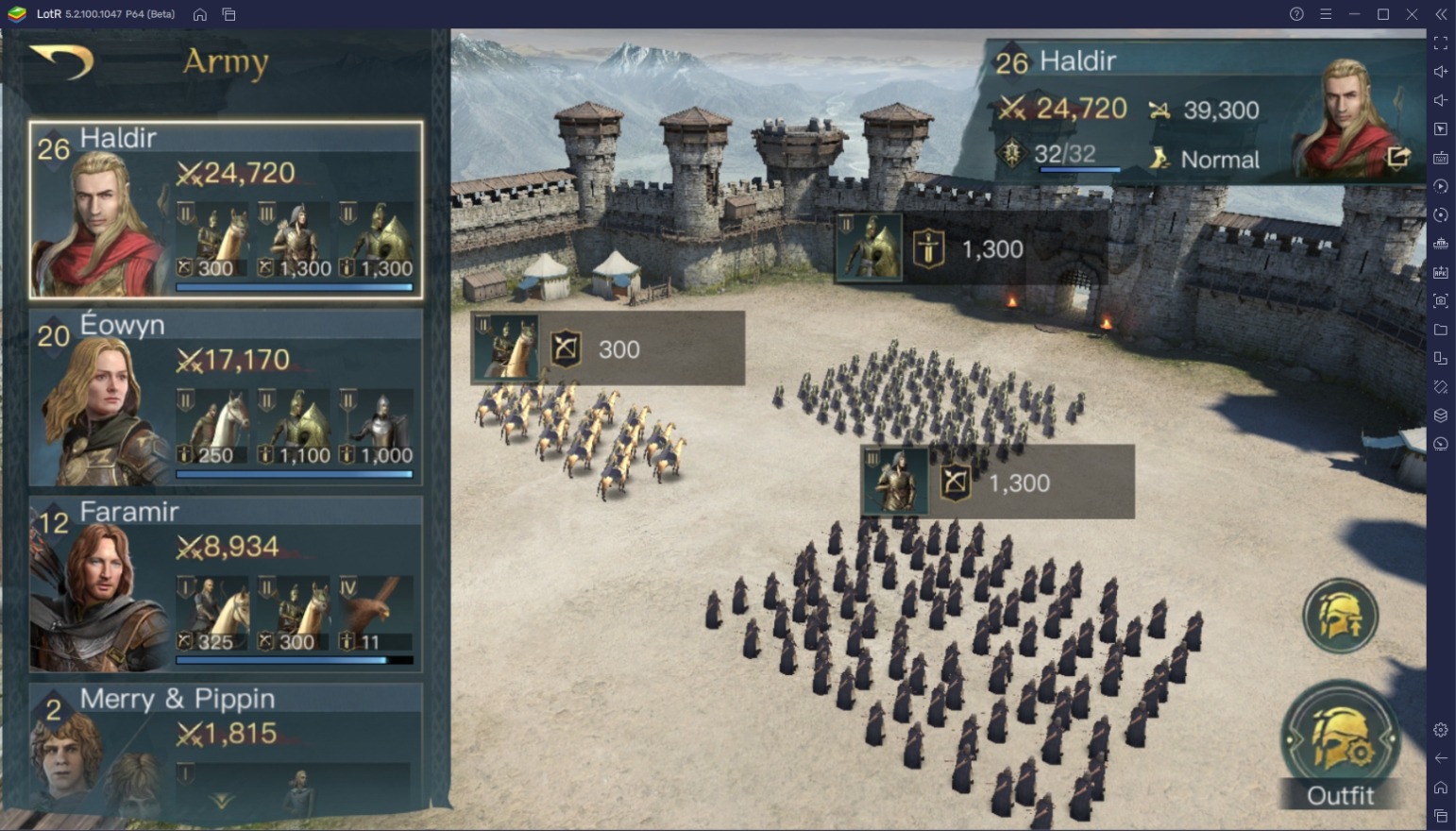
The problem with developing your army is that it requires a lot of resources to achieve. Aside from the troops that are a part of a commander’s army, you’ll need reserves to replenish the troops that will frequently be lost in the endless conflict that players will partake in. Once again, make sure that your economy is stable so that you can do whatever you want to do in the game, including creating an army. Upgrading troops and leveling commanders up are also essential in developing an army. For more information on how to properly develop your military might in this game, please read our military guide.
Territory Expansion
One of the unique features in The Lord of the Rings: War compared to other RTS games is that it heavily emphasizes expanding territory. Players have the option to occupy tiles to benefit their kingdom. Tiles don’t only offer a strategic advantage when it comes to territorial disputes, they also help the kingdom by giving bonus resources. The game will require players to occupy as many tiles as they can according to their current tile limit so that they’ll be ahead of the competition.
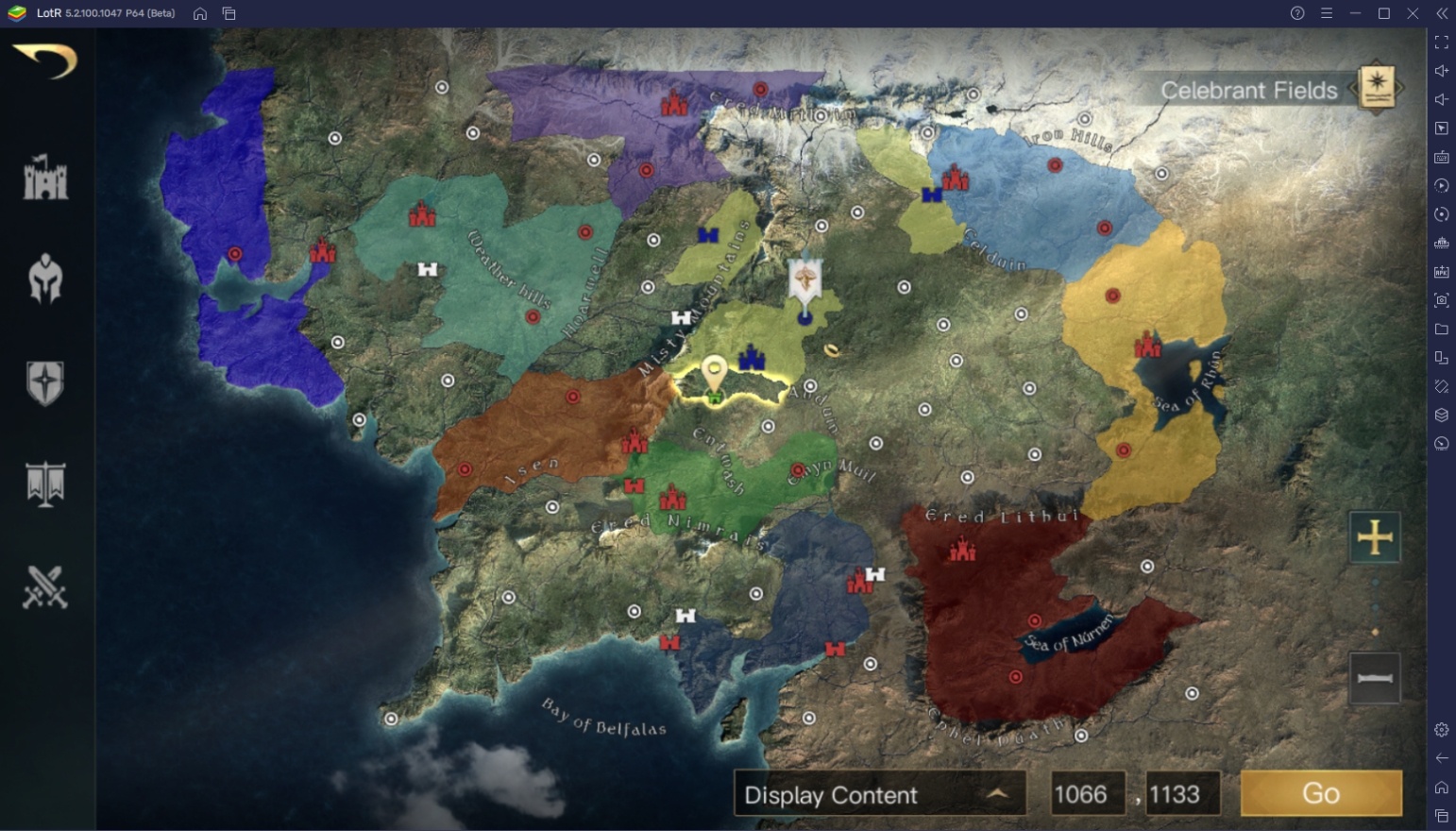
Territorial expansion will be the bloodiest part of the game because an active server will leave players trying to take away tiles from each other. This is why you should play Lord of the Rings: War on PC with BlueStacks, as it’ll give you the tools to enhance your gameplay and stay ahead of the competition. Please read our PC setup guide for this game to learn how to get started. Regardless, this part will require players to have a reliable army to defend their territories from enemies. Usually, the stronger players will occupy the most tiles which will leave the weaker players with nothing but scraps on the map. Players should strive to be the strongest player in their area so that they won’t have to fear getting exploited by other players.
Power Production
Faithful to the source material, The Lord of the Rings: War gives importance to the power of the rings. In the game, you are an owner of a ring of power that allows you to command a growing kingdom. The ring gives the player various passive bonuses that will help their kingdom flourish both in the economic and military sectors. This is equivalent to “researching” in other RTS games but varies in the fact that it doesn’t have a queue of its own and will instead be upgrade using points.
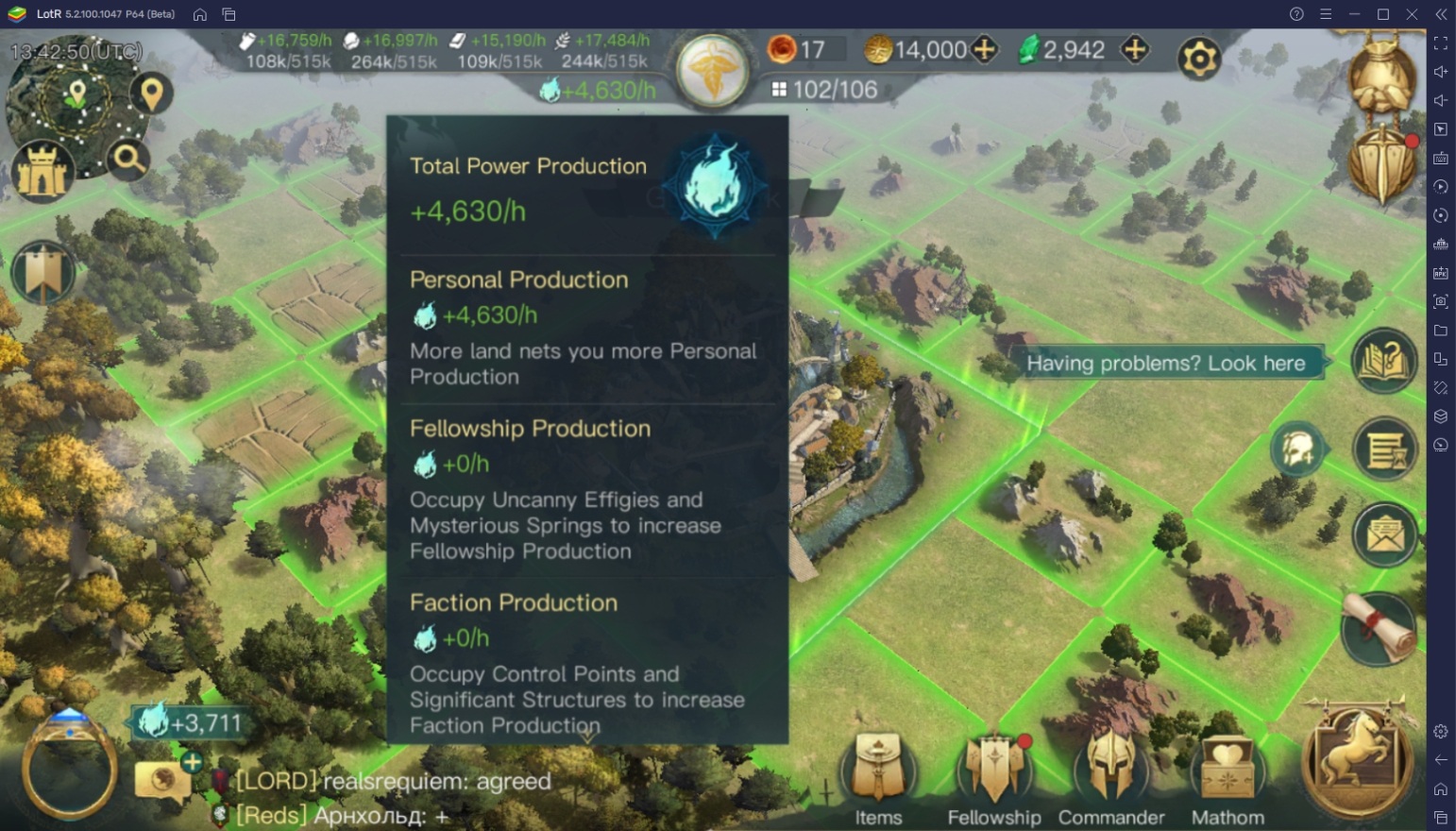
Ring power can be acquired by leveling up the ring of power. This is done by collecting ring power which is passively produced by the cumulative value of your occupied tiles. Attacking unoccupied tiles will also reward the player with a small amount of ring power. Once the player has accumulated a certain number of ring power, they’ll be able to use those to level the ring which will award the player with one skill point to upgrade any one ability available.
Completing Missions
Like every RPG, players are given missions to place them on the right track when playing the game. Some of these missions may seem negligible but it’s important to follow the main campaign so that you can get rewards such as free resources, gems, and speedup items that can accelerate your progress when upgrading your kingdom. The main campaign is made up of several chapters that players can complete one by one.
While it’s practically required to follow the main campaign, that doesn’t mean that players should only strictly follow the tasks on the mission board. Upgrading your kingdom as a whole is important to keep apace with other players and cement your lead as a top commander. Further, you can also check out our tips and tricks to learn more useful tidbits of information to assist in your development efforts. Do what you can when the current mission seems to take a little longer and make sure that your top priority is always development.












